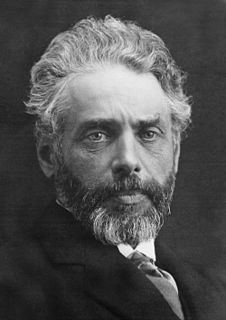A Quote by Debra Dean
I figured that to be a writer I would need to have been born in the nineteenth century, be British, or have three names. So I turned my sights elsewhere . . . to acting.
Related Quotes
Given that the nineteenth century was the century of Socialism, of Liberalism, and of Democracy, it does not necessarily follow that the twentieth century must also be a century of Socialism, Liberalism and Democracy: political doctrines pass, but humanity remains, and it may rather be expected that this will be a century of authority ... a century of Fascism. For if the nineteenth century was a century of individualism it may be expected that this will be the century of collectivism and hence the century of the State.
The Tower. He would come to the Dark Tower and there he would sing their names; there he would sing their names; there he would sing all their names. The sun stained the east a dusky rose, and at last Roland, no longer the last gunslinger but one of the last three, slept and dreamed his angry dreams through which there ran only that one soothing blue thread: There I will sing all their names!
Most of what I read is for reviewing purposes or related to something I want to write about. It's slightly utilitarian. I definitely miss that sense of being a disinterested reader who's reading purely for the pleasure of imagining his way into emotional situations and vividly realized scenes in nineteenth-century France or late nineteenth-century Russia.
But the novels of women were not affected only by the necessarily narrow range of the writer's experience. They showed, at least in the nineteenth century, another characteristic which may be traced to the writer's sex. In Middlemarch and in Jane Eyre we are conscious not merely of the writer's character, as we are conscious of the character of Charles Dickens, but we are conscious of a woman's presence of someone resenting the treatment of her sex and pleading for its rights.
We tend to overestimate what we can do in a short period, and underestimate what we can do over a long period, provided we work slowly and consistently. Anthony Trollope, the nineteenth-century writer who managed to be a prolific novelist while also revolutionizing the British postal system, observed, “A small daily task, if it be really daily, will beat the labours of a spasmodic Hercules.” Over the long run, the unglamorous habit of frequency fosters both productivity and creativity.
































